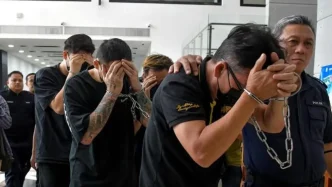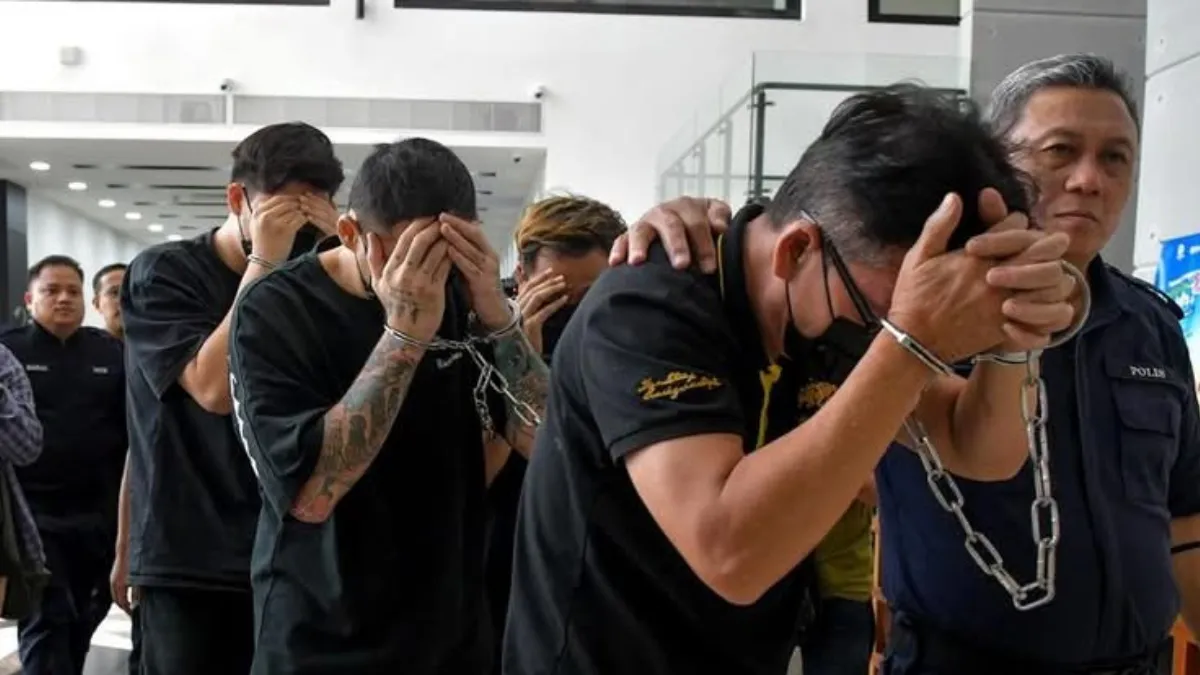Three Singaporean men and a Malaysian national have been charged in Kuala Lumpur with trafficking a cocaine-laced e-vaporiser liquid, in a case that underscores the growing challenge of innovative drug smuggling methods across Southeast Asia. The accused, identified as Quek Kien Seng, 45, Tristan Chew Jin Zhong, 25, Ivan Tan Zhi Xuan, 31, and Kong Sien Mee, 57, face severe penalties under Malaysia’s stringent drug laws, including the possibility of the death penalty or life imprisonment with whipping if convicted.
Details of the Charges and Arrests
The four individuals were formally charged on June 26 in a Kuala Lumpur court with trafficking 9,420.2 milliliters of cocaine under Malaysia’s Dangerous Drugs Act, as reported by the national news agency Bernama. The case was presented before Magistrate Amalina Basirah Md Top, though no plea was recorded as the matter falls under the jurisdiction of the High Court. The next court mention is scheduled for September 8, offering a window into what could become a landmark case in the region’s fight against drug trafficking.
The arrests took place on June 19 in Ampang Jaya, a suburb in Selangor state near Kuala Lumpur, during a targeted raid on a suspected drug syndicate. Authorities discovered ten boxes containing 4,958 units of liquid vape cartridges believed to contain cocaine, with an estimated street value of up to 7.29 million Malaysian Ringgit (US$1.55 million as of June 27, 2025). The contraband was found in a car during the operation, highlighting the sophisticated methods used by traffickers to conceal narcotics in everyday consumer products.
The Singaporean defendants were represented by lawyer Ille Maryam Yusnawannie, while the Malaysian accused, Kong Sien Mee, appeared unrepresented in court. The legal proceedings are expected to draw significant attention due to the international dimension of the case and the harsh penalties associated with drug trafficking in Malaysia.
Syndicate Operations and Regional Implications
At a press conference on June 23, Acting Director of the Narcotics Criminal Investigation Department, Mat Zani Mohd Salahuddin Che Ali, provided insight into the syndicate’s operations. He revealed that the group allegedly rented luxury condominium units in Kuala Lumpur to package the drugs before distributing them to other countries. This method of operation suggests a well-organized network with access to significant resources, raising concerns about the scale of drug trafficking networks operating in the region.
The use of e-vaporiser liquid as a medium for smuggling cocaine represents a troubling evolution in drug trafficking tactics. By embedding narcotics in products that are widely used and often unregulated, traffickers may be attempting to bypass traditional detection methods at borders and checkpoints. This development poses new challenges for law enforcement agencies in Malaysia and neighboring countries, including Singapore, where strict anti-drug policies are also in place.
Malaysia’s Dangerous Drugs Act is among the toughest in the world, reflecting the country’s zero-tolerance stance on narcotics. Convictions for trafficking often result in severe punishments, and the inclusion of foreign nationals in this case may prompt diplomatic discussions between Malaysia and Singapore. While no official statements have been issued by Singaporean authorities regarding the arrests, the case could strain bilateral relations if the accused are convicted and face the death penalty—a punishment that has drawn international criticism in the past.
Broader Context of Drug Trafficking in Southeast Asia
Southeast Asia has long been a hotspot for drug trafficking, with the region serving as both a transit point and a destination for narcotics. The Golden Triangle, encompassing parts of Thailand, Laos, and Myanmar, remains a major source of methamphetamine and heroin production, while synthetic drugs and novel smuggling methods continue to emerge. Malaysia, strategically located along key maritime and air routes, is particularly vulnerable to transnational drug networks.
In recent years, authorities across the region have reported an increase in the trafficking of synthetic drugs and drug-laced products. Vape liquids, edibles, and other consumer goods have been used to conceal substances like cocaine, ecstasy, and cannabis, often targeting younger demographics. This trend not only complicates enforcement efforts but also raises public health concerns, as unsuspecting individuals may consume contaminated products without realizing their contents.
The involvement of Singaporean nationals in this case adds another layer of complexity. Singapore is known for its stringent drug laws, with mandatory death penalties for certain trafficking offenses. The city-state has historically taken a hardline approach to narcotics, and its citizens are frequently warned about the consequences of drug-related activities abroad. If confirmed, the participation of Singaporeans in this syndicate could prompt renewed public awareness campaigns and stricter border controls.
Legal and Social Ramifications
Under Malaysian law, trafficking in dangerous drugs carries a mandatory death penalty upon conviction, though courts may opt for life imprisonment with whipping in certain circumstances. The severity of the punishment reflects the government’s determination to combat the drug trade, which is seen as a major threat to public safety and national security. However, the application of the death penalty has been a point of contention, with human rights organizations arguing that it violates international standards and fails to address the root causes of drug trafficking.
For the accused, the legal process will likely be lengthy and complex, given the jurisdictional transfer to the High Court and the international nature of the case. The lack of representation for Kong Sien Mee could also raise questions about access to fair legal counsel, a critical factor in high-stakes trials. Meanwhile, the Singaporean defendants’ legal team will need to navigate a legal system known for its uncompromising stance on drug offenses.
Beyond the courtroom, this case highlights the social impact of drug trafficking in Malaysia and the wider region. The proliferation of narcotics contributes to addiction, crime, and family breakdowns, placing a heavy burden on communities. Public health initiatives and rehabilitation programs often struggle to keep pace with the influx of drugs, particularly as new substances and delivery methods emerge. Governments face the dual challenge of cracking down on traffickers while addressing demand through education and support services.
Looking Ahead
As the case progresses to its next court mention on September 8, attention will remain on the fate of the four accused and the broader implications for drug enforcement in Southeast Asia. The discovery of cocaine-laced vape liquid signals a need for updated strategies to detect and prevent innovative smuggling tactics. For Malaysia and Singapore, collaboration on cross-border crime will be essential to dismantle syndicates that exploit regional connectivity.
Questions also linger about the potential diplomatic fallout and the treatment of foreign nationals under Malaysia’s drug laws. While the evidence presented so far appears substantial, the trial’s outcome remains uncertain, and public reactions in both countries will likely shape the narrative. For now, the case serves as a stark reminder of the persistent and evolving threat of drug trafficking in the region.















